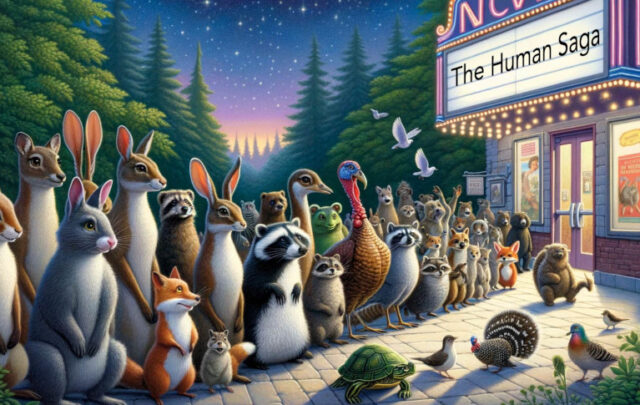 In this Climate One conversation, two of the most influential environmentalists of the past 30 years share the same stage for just the second time in their long careers in public life. Bill McKibben, co-founder of 350.org and author of Eaarth, and Paul Hawken, entrepreneur and author of Blessed Unrest, talk about the ailing economy, the economy we must build to succeed it, and the forces that stand in the way. Climate One’s Greg Dalton opens by asking Hawken and McKibben how the United States ended up mired in recession. “We get into this predicament by artificially stimulating consumption for the past 40 years,” replies Hawken. The bursting of the credit bubble should tell us, he says, that consumerism, our longtime economic crutch, won’t get us out of this mess. McKibben agrees. Since the end of World War II he says, “the basic animating force of that economy was the task of building bigger houses farther apart from each other. It’s a project that ended up being environmentally ruinous, and socially ruinous, too.” And yet those ruins give us something to build upon. “The economy we’re moving towards looks less to growth than to durability and resilience and security. The trajectory will be more in the direction of local, instead of the ever-expanding outward globalism that’s relied on an endless supply of cheap fossil energy to make it possible.” “My only real worry,” he says, “is that climate change is happening so fast that it may knock the props out from under the whole thing before we can get to where we need to go.” The way forward is studded with challenges, Hawken says. First among them, the fear that individual actions won’t, by themselves, be enough. Small acts are rational and helpful, he says, but in the doing you don’t step back and ask: What do we really need to change? “What we need to change,” he answers, “is the system. And the system cannot change until there is a manifest crisis that is shared.” The problem, McKibben explains, is that the fossil fuel industry is actively working to block systemic change. “Most people understand that climate change is an incredibly serious problem about which we need to do something,” he says. “Our problem is far and away caused by the fact that the fossil fuel industry, which is the most profitable industry on Earth, has all of the financial means at their disposal to keep us from taking action.”
In this Climate One conversation, two of the most influential environmentalists of the past 30 years share the same stage for just the second time in their long careers in public life. Bill McKibben, co-founder of 350.org and author of Eaarth, and Paul Hawken, entrepreneur and author of Blessed Unrest, talk about the ailing economy, the economy we must build to succeed it, and the forces that stand in the way. Climate One’s Greg Dalton opens by asking Hawken and McKibben how the United States ended up mired in recession. “We get into this predicament by artificially stimulating consumption for the past 40 years,” replies Hawken. The bursting of the credit bubble should tell us, he says, that consumerism, our longtime economic crutch, won’t get us out of this mess. McKibben agrees. Since the end of World War II he says, “the basic animating force of that economy was the task of building bigger houses farther apart from each other. It’s a project that ended up being environmentally ruinous, and socially ruinous, too.” And yet those ruins give us something to build upon. “The economy we’re moving towards looks less to growth than to durability and resilience and security. The trajectory will be more in the direction of local, instead of the ever-expanding outward globalism that’s relied on an endless supply of cheap fossil energy to make it possible.” “My only real worry,” he says, “is that climate change is happening so fast that it may knock the props out from under the whole thing before we can get to where we need to go.” The way forward is studded with challenges, Hawken says. First among them, the fear that individual actions won’t, by themselves, be enough. Small acts are rational and helpful, he says, but in the doing you don’t step back and ask: What do we really need to change? “What we need to change,” he answers, “is the system. And the system cannot change until there is a manifest crisis that is shared.” The problem, McKibben explains, is that the fossil fuel industry is actively working to block systemic change. “Most people understand that climate change is an incredibly serious problem about which we need to do something,” he says. “Our problem is far and away caused by the fact that the fossil fuel industry, which is the most profitable industry on Earth, has all of the financial means at their disposal to keep us from taking action.”





